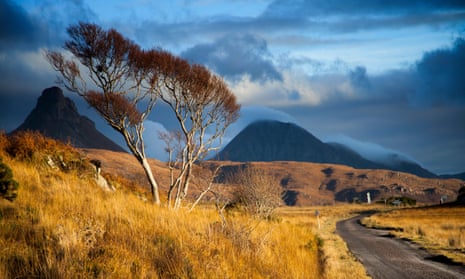There are very few experiences as unique, sobering and intimate for a nurse as entering a stranger’s house in the middle of the night and watching them die.
There’s no hospice provision where I’m based in rural north Scotland. For those diagnosed with progressive, incurable illnesses such as cancer or heart failure, a health professional will offer them a preferred place of death. It’s a stark choice: a bed in the local community hospital (if available) or die at home.
For most of the farming families I visit, it’s an easy decision. “They’ll have to carry me out of here in a box” is a familiar refrain. The farms have been passed down from generation to generation and with it a way of life that is all-encompassing – right up to the point where it ends.
I was once called to visit an elderly woman in the terminal stages of her illness. Lying barely conscious in the bed, she no longer had the strength to lift herself up, though the agitation in her face and limbs indicated she had not stopped trying. “Can you believe she was out in the yard counting the cows this morning?” her daughter asked me in astonishment. “And complaining because I was ushering her back inside.”
Earlier that afternoon the district nurse had inserted a tube into her bladder to allow the urine to drain. It had fallen out and a new one was required. “Did she pull it out?” I asked, wincing at the sight of the intact balloon that should have been sitting at the neck of the bladder, and contemplating the potential journey it had made from there to freedom. “Ah, no. It just dropped out,” said the daughter over her shoulder as she continued with the washing up. “She’s had so many children I’d be surprised if anything stays up there for long now.”
The farms are often sprawling stone buildings surrounded by fields and potholed tracks, impossible to find by satnav, unlit and barely noticeable in the middle of the night. They’re positioned high on hills so steep that when the weather is heavy the professional composure you assumed when disembarking from the car is lost and you find yourself sliding back down the slope, feet unable to grip, flailing like a cartoon.
People who live out there are tough, melded by the work and the weather, with a rare stoicism.
I work night shifts. In the small hours, driving around the countryside can be spectacular. Mine is the only vehicle on the road, swerving round deer startled by the headlights or slowing down for lolloping badgers and panicking pheasants. At the height of summer, the light barely fades at night and, once or twice, I’ve been caught awestruck beneath a meteor shower, the vast open night sky totally filled with light for an instant.
Pain is a big potential issue during the dying process – for both the patient and their family. Sometimes I feel totally inadequate as I open the so-called “just-in case” box and look at the handful of vials I can administer for pain, agitation or nausea.
My colleague likes to tell of a patient whose unresolved abdominal pain was a huge problem as she neared death, and the eventual solution that became like the holy grail among practitioners. It finally came when the nurse had a conversation with the elderly patient who confided that, as a proud woman, she did not want anyone to see her without her dentures.
The thing she feared most about death was someone removing her teeth after the event and being powerless to stop them. The moment the nurse reassured her she would ensure the teeth would be left intact, the woman’s pain, untreatable by morphine and any amount of adjunct therapy, simply dissolved. She experienced a peaceful death.
The deaths I see are rarely just about one person dying. The family and loved ones are part of the experience, as I guess are us nurses. The journey towards death can be hard to navigate. Sometimes it is not peaceful and we cannot resolve the pain or agitation. “They’ll have to take me out of here in a box” seems glib when you’re watching a patient or loved one unable to articulate their experience and tossing and turning restlessly for hours, turning us all into onlookers who can only guess what they might need. But it’s also a truly human experience, the point that all our lives lead to – and, for me as a nurse, as humbling as that meteor shower.
If you would like to contribute to our Blood, sweat and tears series about experiences in healthcare, read our guidelines and get in touch by emailing sarah.johnson@theguardian.com
Comments on this piece are premoderated to ensure discussion remains on topics raised by the writer. Please be aware there may be a short delay in comments appearing on the site.
